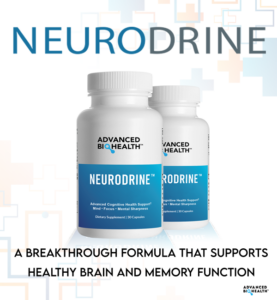Does Aducanumab work as an effective treatment for Alzheimer’s?

Aducanumab is a new treatment for Alzheimer’s that is showing a lot of promise. In this article, we’ll take a look at how effective it is and what the side effects are.
What is Alzheimer’s disease?
Alzheimer’s disease is a progressive neurodegenerative disorder that affects the brain cells and causes memory loss and impaired thinking. The cause of Alzheimer’s disease is not yet known, but it is believed to be associated with a combination of genetic, lifestyle, and environmental factors. There is no cure for Alzheimer’s disease, but there are treatments that can help to manage the symptoms. One such treatment is aducanumab, which is a monoclonal antibody that targets amyloid beta proteins in the brain. Aducanumab has shown promise in clinical trials as an effective treatment for Alzheimer’s disease, and it is currently being investigated in larger clinical trials.
Current treatments for Alzheimer’s disease
Current treatments haven’t been targeting the amyloid-beta protein in the same way as this new drug. Although there is no cure for Alzheimer’s at this moment, preliminary research suggests that Aducanumab may be a promising new treatment for Alzheimer’s disease.
Aducanumab as a potential treatment for Alzheimer’s
Alzheimer’s disease is a devastating condition that robs people of their memories and eventually their ability to function.
Aducanumab (Aduhelm) is a drug that targets a protein called amyloid-beta, which is thought to play a role in the development of Alzheimer’s disease. Aducanumab has shown promise in early studies, but it is still unclear whether it is an effective treatment for Alzheimer’s. More research is needed to determine whether aducanumab can help people with Alzheimer’s disease live longer, healthier lives. The FDA gave accelerated approval to this drug.
How does Aducanumab work?
Aducanumab is a monoclonal antibody that works by targeting and clearing out the amyloid beta protein deposits that are thought to play a role in the development of Alzheimer’s disease. Amyloid beta is a normal protein found in the brain, but in people with Alzheimer’s, these proteins clump together and form deposits that can damage brain cells and lead to cognitive decline.
Aducanumab is designed to bind to and remove these amyloid beta deposits from the brain, potentially slowing or even reversing the progression of Alzheimer’s disease. While the exact mechanisms behind how Aducanumab works are still being studied, early research suggests that it may be effective.
Clinical trials of Aducanumab
Aducanumab is a monoclonal antibody that targets amyloid-beta, the protein that forms the brain plaques characteristic of Alzheimer’s disease. Clinical trials testing the efficacy of aducanumab are currently ongoing.
Initial results from phase I clinical trials suggest that aducanumab may be an effective treatment for Alzheimer’s disease. In one trial, patients treated with aducanumab showed significant reductions in amyloid-beta levels compared to those who received placebo. Additionally, patients treated with aducanumab showed improvements in cognitive function and brain imaging measures of disease severity.
These preliminary results are promising, but larger and longer-term clinical trials are needed to confirm the efficacy of aducanumab as a treatment for Alzheimer’s disease.
Side effects of Aducanumab
Aducanumab is a new medication that has shown promise in treating Alzheimer’s disease. However, it has potential side effects. The most common side effects reported with aducanumab are headaches, dizziness, and nausea. These side effects are usually mild and go away without additional intervention. More serious side effects include inflammation of the brain and seizures. These side effects are rare and usually happen in people who have other medical conditions. If you experience any of these side effects, please contact your doctor immediately.
Conclusion
Although the jury is still out on whether or not aducanumab is an effective treatment for Alzheimer’s, there is some promising research that suggests it may be helpful in slowing the progression of the disease. If you are considering aducanumab as a treatment option, be sure to speak with your doctor to see if it is right for you.







